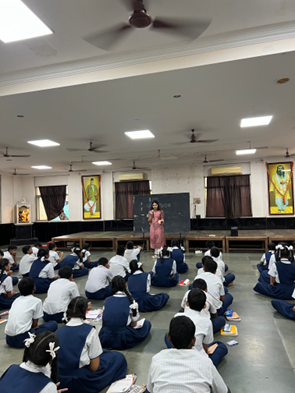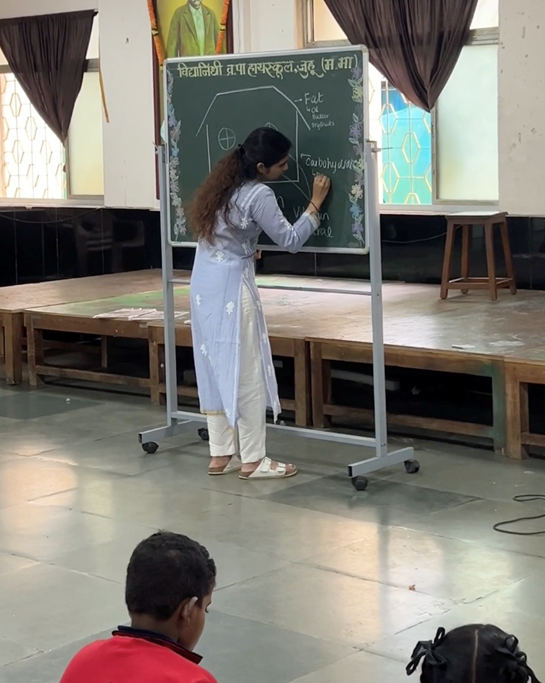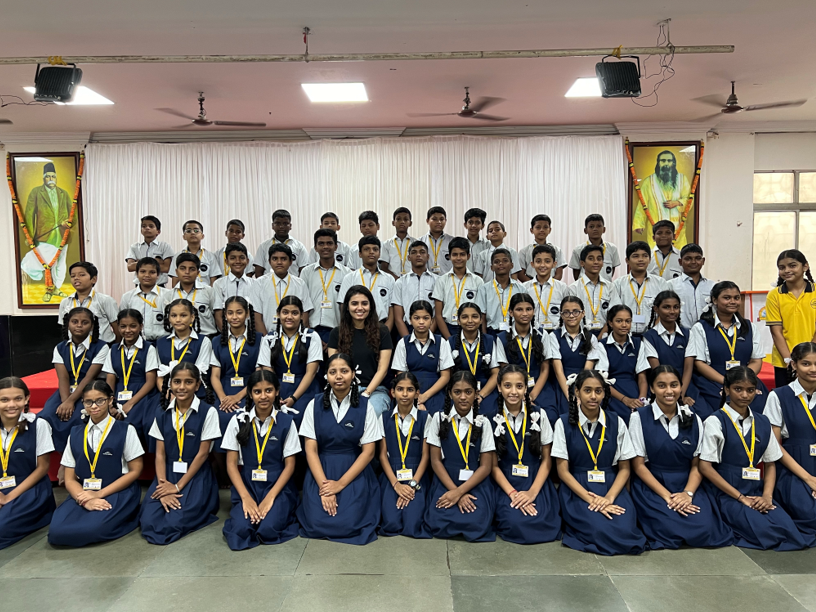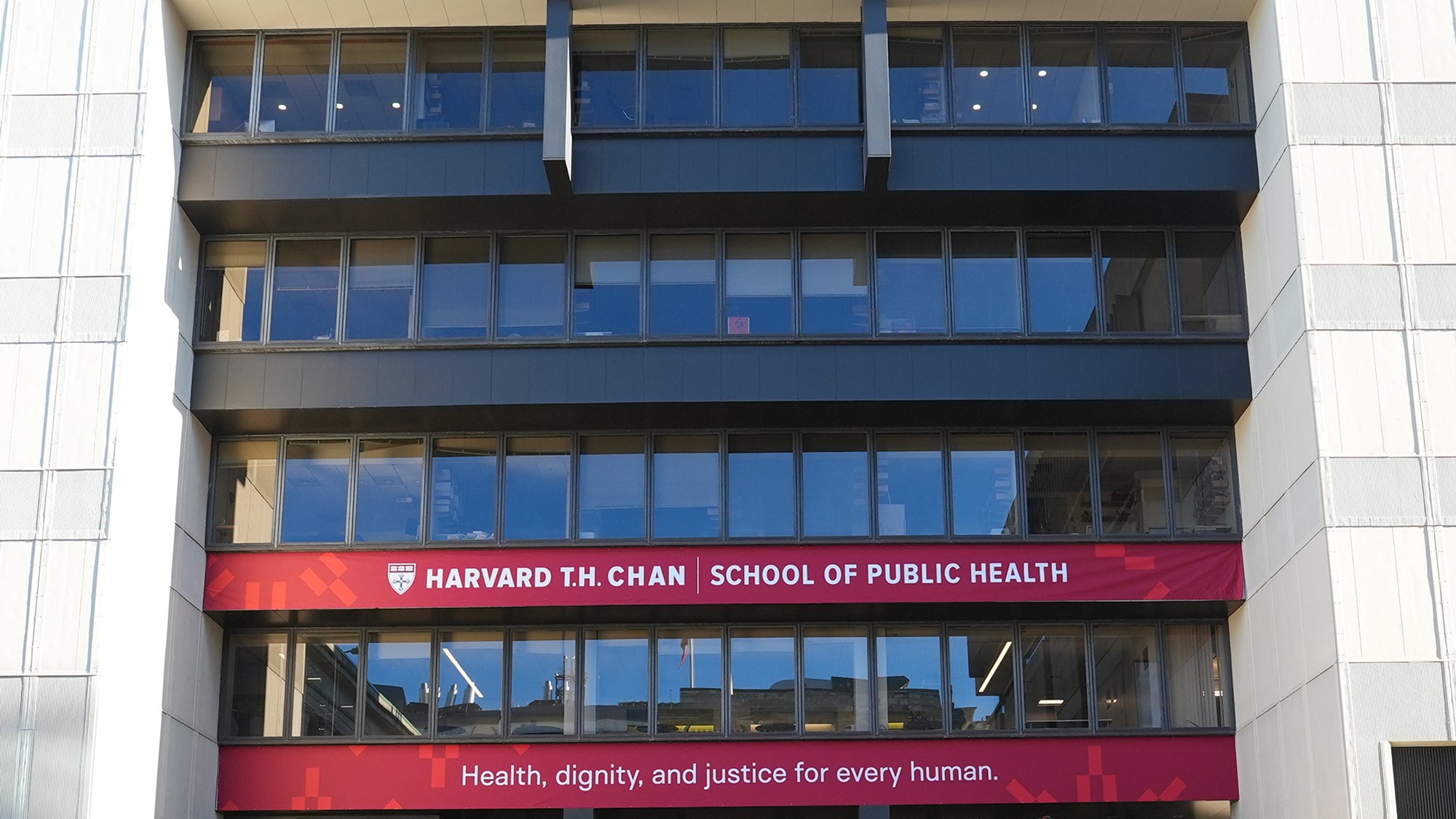Empowering Change: How Children Became Catalysts for Community Health Transformation

By Michelle Shah
Rose Service Learning Fellow
MPH Candidate, Nutrition
During my paediatric residency, I witnessed how deeply socioeconomic factors impact children’s health. The post-pandemic era brought to light a troubling increase in lifestyle-related disorders, particularly affecting children from lower socioeconomic backgrounds. This disparity was a call to action.
Motivated by a deep desire to create meaningful change, I identified government schools as a crucial platform for delivering essential education on nutrition, sleep, mental health and physical activity- topics notably absent from the existing curriculum. These schools, with their affordability and extensive reach, were uniquely positioned to make a significant impact. I set out to develop a tailored educational module for underserved children in Mumbai, studying at V.P. Vidhyanidhi School, who often reside in food deserts where fresh produce is scarce and healthier options are prohibitively expensive compared to cheaper, high-calorie, nutrient-poor foods.
To fill this gap, I created a culturally relevant curriculum with a focus on nutrition, movement, sleep and mental health, guided by the expertise of Dr. Cara Ebbeling of Boston Children’s Hospital. My approach was informed by a community needs assessment, which highlighted the cultural and socioeconomic constraints impacting daily habits. Conversations with teachers and parents revealed a significant lack of education on making healthier choices and the barriers to accessing healthier options, whether due to food availability or limited green spaces.
One of the major challenges was figuring out how to integrate healthy practices into the daily lives of these children. How could they be encouraged to exercise in cramped living conditions? How could they achieve adequate sleep when sharing rooms with family members and facing frequent disruptions?
As I navigated these questions, I had a pivotal realization: education has the power to ignite innovation and creativity. Instead of providing all the answers myself, I began to engage the children directly, teaching them the fundamentals of nutrition, movement, sleep and mental health.

And the results were profoundly encouraging. The children began to develop innovative solutions to these challenges, applying their newfound knowledge in practical ways that fit their environments. They started to understand and embrace these concepts, sharing their insights with their families and initiating a ripple effect of positive change within their communities. Witnessing this transformation was the most rewarding aspect of my journey – seeing children not only grasp these concepts but also become active agents of change.
This experience has deeply influenced my perspective as a public health professional, underscoring the importance of humility, adaptability and collaboration. I learned that effective public health initiatives are not merely about disseminating information but about engaging with the community, especially its youngest members, to co-create practical and impactful solutions. The realization that children, often seen as passive recipients of knowledge, are actually powerful contributors to public health strategies has made me more attuned to their voices and more committed to incorporating their feedback into program design and implementation.

Moreover, this experience illuminated the critical importance of cultural relevance and context in public health work. Tailoring interventions to the local environment and leveraging the community’s inherent strengths can significantly enhance the effectiveness of public health initiatives. This has deepened my understanding of approaching public health challenges holistically – considering not only the scientific evidence but also the lived experiences of the community.
My journey of empowering change through education has revealed that true progress in public health lies in the collaboration between knowledge and community insight. By engaging directly with those we aim to help and fostering their innate creativity, we can develop solutions that are both practical and sustainable. This approach not only addresses immediate needs but also builds lasting resilience and self-efficacy within communities. After the learnings from this experience, I believe my path forward in public health will be paved with humility, innovation and an unwavering commitment to empowering those I aim to serve.



